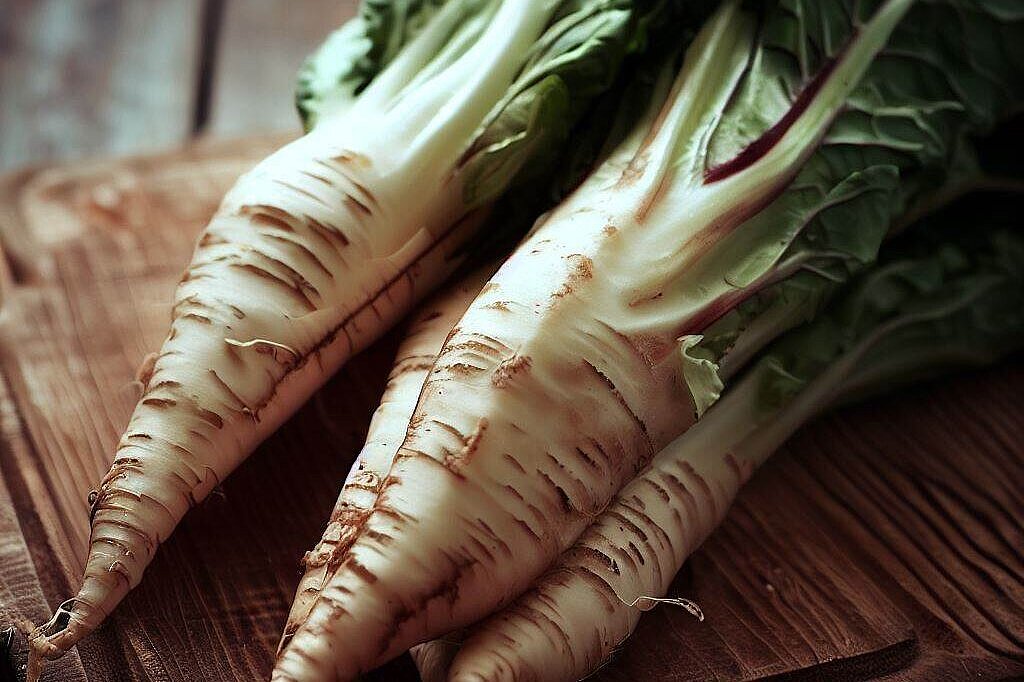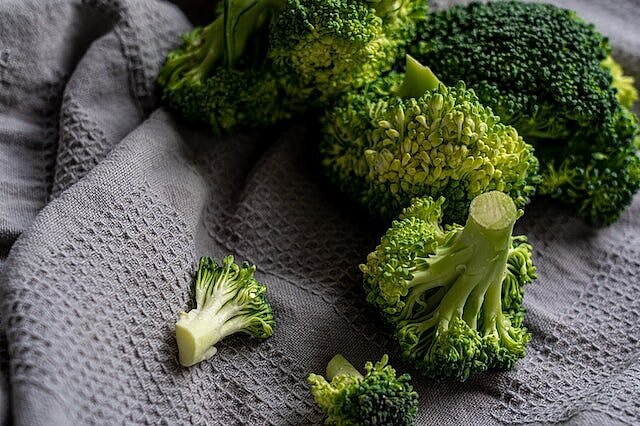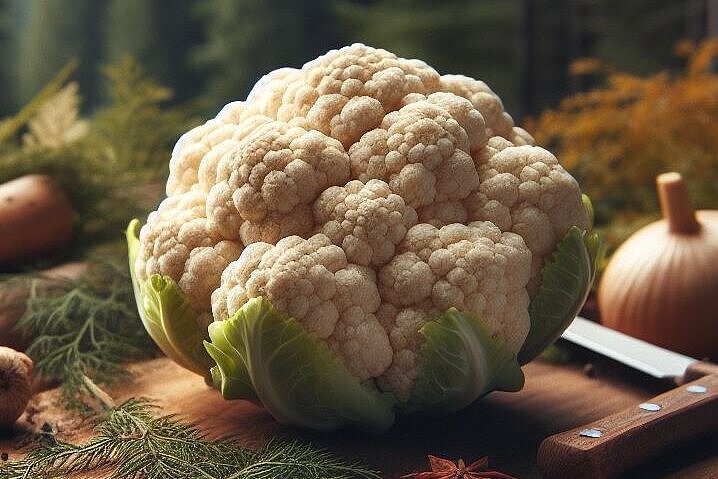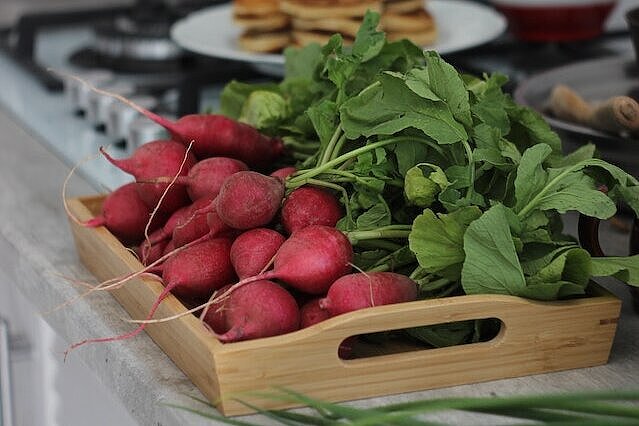Kohlrabi
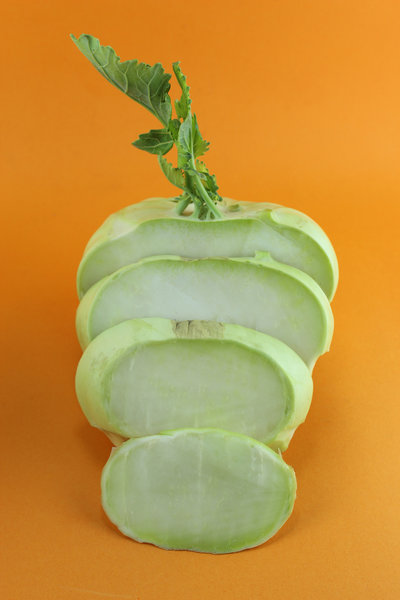
Kohlrabi is a vegetable that belongs to the cruciferous family. It has a mild, slightly sweet taste and a crunchy texture. Kohlrabi can be eaten raw or cooked and is rich in vitamin C, potassium, folic acid and fiber. But is kohlrabi also suitable for dogs? In this article, you will find out what you should bear in mind if you want to feed kohlrabi to your four-legged friend.
The benefits of kohlrabi for dogs
Kohlrabi can have several health benefits for dogs when fed in moderation. For one, kohlrabi can aid digestion because it contains a lot of water and fiber. Fiber can also help regulate blood sugar levels and prevent obesity. Secondly, kohlrabi can strengthen the immune system as it contains lots of antioxidants and vitamin C. Antioxidants protect the cells from free radicals, which can lead to inflammation and disease. Vitamin C supports the formation of collagen, which is important for the skin, coat and joints.
The disadvantages of kohlrabi for dogs
Although kohlrabi is healthy, it is not suitable for all dogs. Some dogs can react sensitively to cruciferous vegetables and develop flatulence, diarrhea or vomiting. Cruciferous vegetables also contain so-called glucosinolates, which can impair thyroid function in large quantities. You should therefore not give your dog too much kohlrabi and get him used to the vegetable slowly. If your dog has an underactive thyroid or is taking medication for it, you should speak to your vet before feeding them kohlrabi.
How do you feed kohlrabi to dogs?
If you want to feed kohlrabi to your dog, you should follow some tips to make the vegetable palatable and avoid possible side effects. Here is some advice:
- Choose fresh and organic kohlrabi that contains no contaminants or pesticides.
- Wash the kohlrabi thoroughly and cut it into small pieces. Remove the skin and woody parts.
- Boil the kohlrabi briefly in water or steam it to soften it and reduce the glucosinolates.
- Mix the kohlrabi with some high-quality dog food or meat broth to make it more appetizing.
- Start with small amounts and see how your dog reacts. Slowly increase the amount until you have replaced about 10% of the daily food with kohlrabi.
- Feed your dog kohlrabi no more than two to three times a week and vary the vegetables with other varieties such as carrots, pumpkin or zucchini.
Kohlrabi is a tasty and healthy vegetable that you can feed your dog in moderation. It can promote your dog's digestion, immune system and well-being. However, make sure that you don't give your dog too much kohlrabi and introduce it slowly. If your dog has an underactive thyroid or is taking medication for it, you should speak to your vet before feeding them kohlrabi. This way you can make sure that your dog benefits from the vegetable and doesn't have any undesirable side effects.
If you notice any signs of hypersensitivity or poisoning in your dog, you should see your vet immediately. We are not a substitute for a vet, but we try to be as accurate as possible. Every dog reacts differently and we recommend you get a second opinion or consult your vet if in doubt.
Stay healthy and take good care of your four-legged friend!😊
Similar to Kohlrabi
Beetroot has a number of benefits for dogs that make it a good nutritional supplement. For example Beets are rich in fiber, which can aid digestion and increase satiety.Fodder beets are rich in...
Broccoli belongs to the cruciferous family, a plant family that also includes cabbage, Brussels sprouts, kale and cauliflower. Broccoli has a thick stalk and small green florets that look like...
Cauliflower belongs to the cruciferous family and is closely related to broccoli and kohlrabi. It consists of many small white florets that grow on a thick stalk. The green leaves cover the head and...
Radishes belong to the cruciferous family, which also includes broccoli, cabbage and mustard . They contain a lot of mustard oil, which is responsible for their typical taste. They also have a high...
